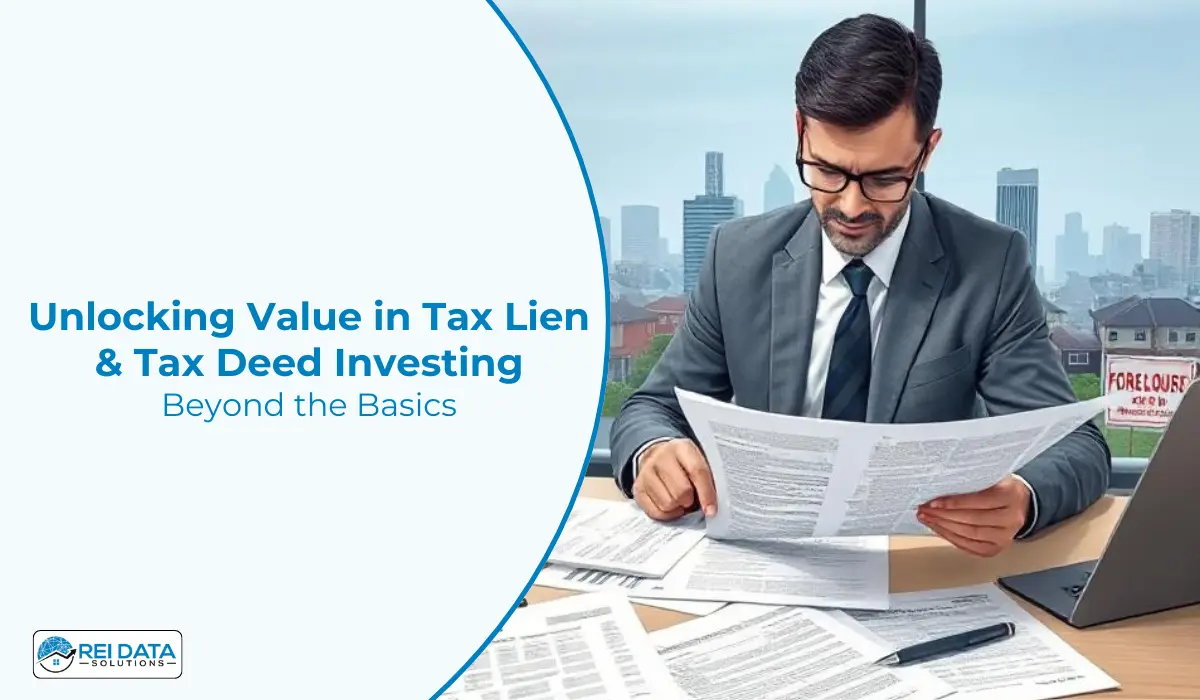Foreclosure property investments are a high-risk, high-reward opportunity.
While their below-market price tag makes them a lucrative option, you need to check whether the purchase is going to be fruitful or not.
Foreclosed homes frequently come with a variety of issues that require attention and resources to fix. These properties might be neglected, have legal complications, or even hidden costs that add to their overall expense.
The truth is that foreclosure purchasing might look appealing, the work to bring the property up for selling can be hectic.
You can easily lose money if you’re not careful.
This guide talks about major pitfalls that can help you do your due diligence and avoid investing in loss-making properties.
1. Common Property Problems
You need to remember that foreclosure properties are given up by the owners who failed mortgage payments.
It is highly likely that the previous owners were not able to maintain the home properly.
In many cases, the past residents may have taken their frustrations out on the property. Causing damage or removing appliances and fixtures before leaving are not unheard.
After the repossession, these homes may sit idle for a period of time, leaving them vulnerable to vandalism or further deterioration.
2. Maintenance and Condition
Foreclosed homes are typically left in poor condition due to neglect or abandonment.
They might have been modified without proper permits, making repairs costly and time-consuming.
You could also end up with half-finished homes, outdated rooms, or badly done DIY repairs.
Most bank-owned properties are sold ‘as-is,’ meaning you will be responsible for any leftover items, such as furniture or personal belongings.
3. Vandalism and Neglect
Abandoned homes are easy targets for vandalism. Investors report having to deal with broken windows, damaged walls, or stolen fixtures.
In extreme cases, past owners may intentionally damage the property out of frustration.
Thieves may strip abandoned homes of valuable items like copper pipes or appliances.
All of these means you’ll need to invest significant time and money into repairs.
4. Purchase Problems
Another problem is securing finances for a foreclosed home, especially if the property is in poor condition and deemed uninhabitable.
Investors paying cash have an advantage in this market, while owner-occupants generally face delays during the buying process due to bank bureaucracy.
5. No Seller Disclosures and Competition
Unlike traditional home purchases, banks selling foreclosures typically do not disclose past owner information.
Plus, foreclosed homes tend to attract investors with cash offers and ready for quick closings, making competition fierce.
Common Misṭakes to Avoid When Investing in Foreclosure Property
1. Don’t Skip Mortgage Pre-Approval
Securing mortgage pre-approval shows lenders that you’re serious and ready to move quickly.
This can give you an advantage when profitable deals come up since you’re already financing in place.
Being pre-approved ensures smoother negotiations and you’ll be able to act fast.
2. Don’t Assume It’s a Good Deal
Foreclosures used to offer steep discounts, especially after the 2009 recession. However, the market has shifted.
You will come across foreclosures that are now priced at or above market value, even when repairs are needed.
It’s always a good idea to conduct thorough research on the property and its current value before investing.
3. Run a Title Search
Foreclosed properties can come with liens or legal issues.
Hire an experienced attorney and review the title to ensure you’re not stuck with unresolved claims, like unpaid taxes or judgments.
4. Avoid Unfamiliar Properties
Avoid investing in unfamiliar property types even if the foreclosure is priced low.
These properties may come with unseen problems that you may not be able to judge due to inexperience.
You could overlook structural issues, costly repairs, or legal problems just to name a few.
5. Understand What’s Around the Property
Always visit the property and investigate the neighborhood and the surrounding.
You might end up next to undesirable features like a chemical plant or a railroad track that could drastically lower the property’s value and lower your ROI.
6. Get Your Financing Ready
Timing is everything when eyeing for a foreclosure.
Keep your financing lined up, whether it’s through a traditional mortgage lender or other means.
Banks are keen to sell foreclosure properties quickly, and if you’re not ready, you could miss out due to competition.
7. Be Empathetic If Buying Pre-Foreclosures
If you’re purchasing a pre-foreclosure from the homeowner, show empathy.
These people might be going through a difficult time, and if you can position yourself as someone helping them, you can gain their trust. This will make the deal smoother, build goodwill, and may help you with negotiation.
8. Check Structural Integrity
Don’t be swayed by flashy cosmetic upgrades.
It’s crucial to evaluate the core systems of the property like plumbing, heating, and electrical systems.
If these systems are compromised, you might face expensive repairs that could wipe out your profit margins.
9. Watch Out for Liens
Figure all the liens attached to the property beforehand.
Are you responsible for paying any prior liens? Are these disclosed upfront?
Some title companies may also refuse to insure properties with certain tax liens, adding more risk.
10. It’s Not a DIY Project
Foreclosures can come with major repairs, and weekend DIY won’t be enough.
Consult with professionals—experienced real estate agents, repair contractors etc.—rather than trying to handle everything yourself.
11. Visit In-Person
It may feel tempting to purchase a foreclosure online or based on pictures. Our take is, don’t fall for it ever!
Always visit the property in person to get a full understanding of the property’s condition.
12. Don’t Do It Alone
The foreclosure process is complex. Navigating it solo can quickly become an overwhelming task.
Have a team of professionals, such as real estate agents, attorneys, and inspectors to avoid potential pitfalls.
Foreclosure Investing Preflight Checklist
Before you dive into purchasing a foreclosure property, ensure you’re well-prepared. This will save you from unexpected issues and make the process smoother.
Here’s a go to checklist to help you out:
- Foreclosure Notice or Notice of Default: If available, get a copy to verify the foreclosure status.
- Title Commitment and History: Secure a title commitment, along with a 24-month history of the property’s chain of title, or at least the last two recorded documents. This will give you a clear understanding of the ownership trail.
- Copy of the Deed: A deed with the current homeowner’s name confirms ownership details.
- First Mortgage Information: Get the last recorded first mortgage document to understand how much the homeowners currently owe.
- Knowledge of All Liens: Ensure you are aware of any financial claims, including property tax liens, to avoid hidden financial surprises.
- Map of the Property Location: A detailed map of the area and property’s proximity to important amenities.
- Exterior Home Inspection Notes: Conduct an exterior inspection of the property and make notes and take photographs. Take shots of the home from different angles, street views, and neighborhood scenes.
- City Worksheet: This document shows what major renovations have been done, inspection reports, or other property details recorded by the city.
- Comparable Properties: MLS listings of recently sold or current properties in the area will help gauge the value of the foreclosure.
- Tax Bills: Copies of current tax bills and whether they are delinquent or paid up will affect your future financial obligations.
- SEV (Standard Equalized Value): Knowing the SEV is important because it’s the basis for calculating property taxes.
- Homeowner Meetings: If you’ve had any discussions with the homeowners before the foreclosure. Keep notes of these interactions.
FAQs on Buying a Foreclosed Home
1. How Can I Buy a Foreclosed Home?
You can purchase a foreclosed home through three primary methods:
- Real Estate Agent: Work with an agent who specializes in foreclosures to find properties listed on the MLS
- Short Sale: Buy the property before it goes into full foreclosure, where the lender agrees to sell it for less than the mortgage balance
- Auction: Foreclosure auctions are held by lenders, where homes are sold to the highest bidder
2. Should I Invest in a Foreclosed Home?
Investing in a foreclosed home can be a lucrative option, but it often comes with challenges. Foreclosed homes are typically sold “as-is,” meaning they may need repairs or renovations before they can be flipped or put up for rental.
3. What Does Foreclosure Mean?
A foreclosure occurs when a homeowner is unable to make mortgage payments, and the lender seizes the property to recover their losses. The property is then sold, often at a discount, either through an auction or directly on the market.
4. Can I Use a Mortgage to Buy a Foreclosed Home?
Yes, it is possible to use a mortgage to buy a foreclosed home. Government-backed loans (such as RBC, FHA, VA, or USDA) and conventional loans are available options. However, the property must pass a home inspection and an appraisal to qualify for financing.




